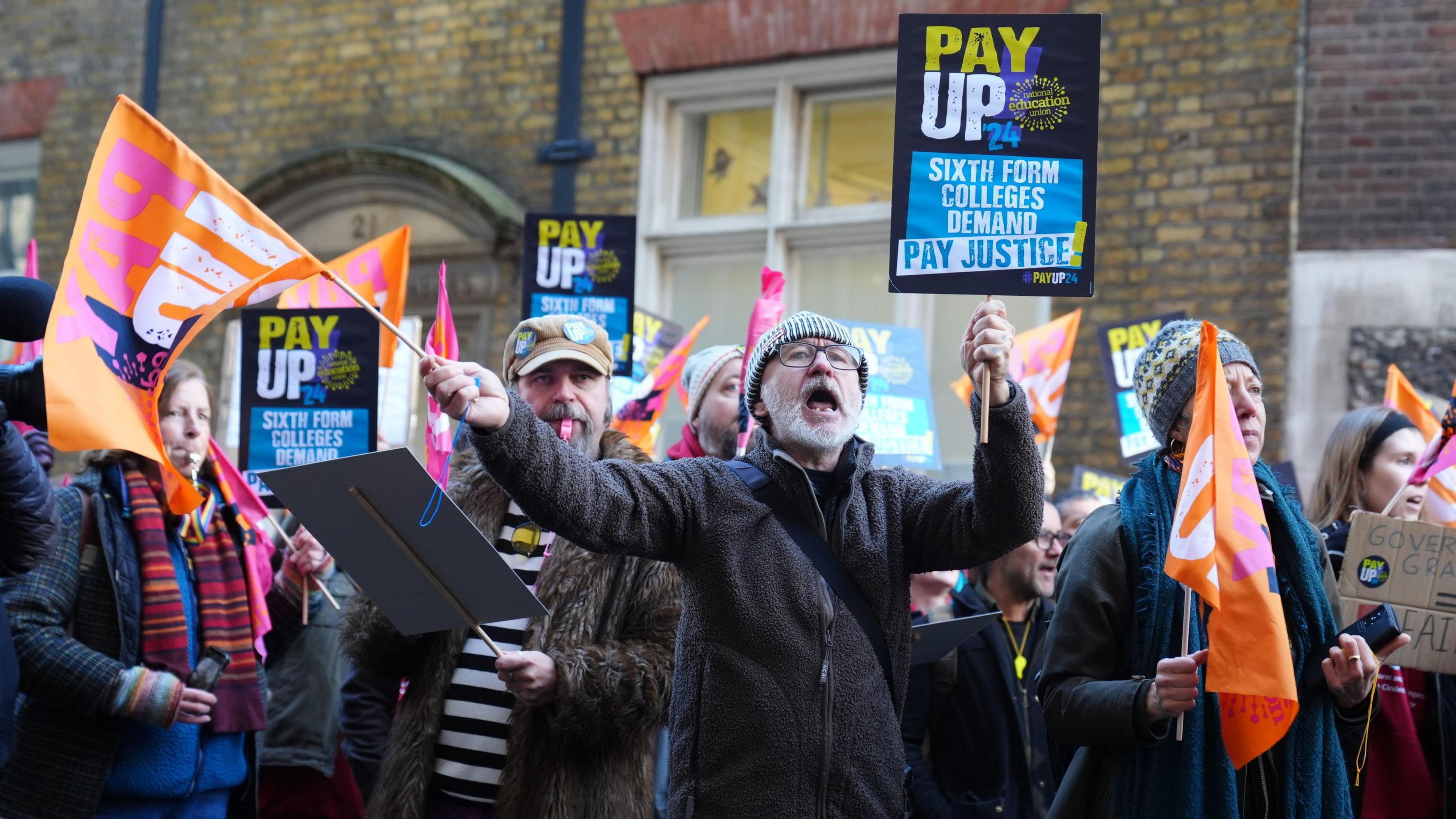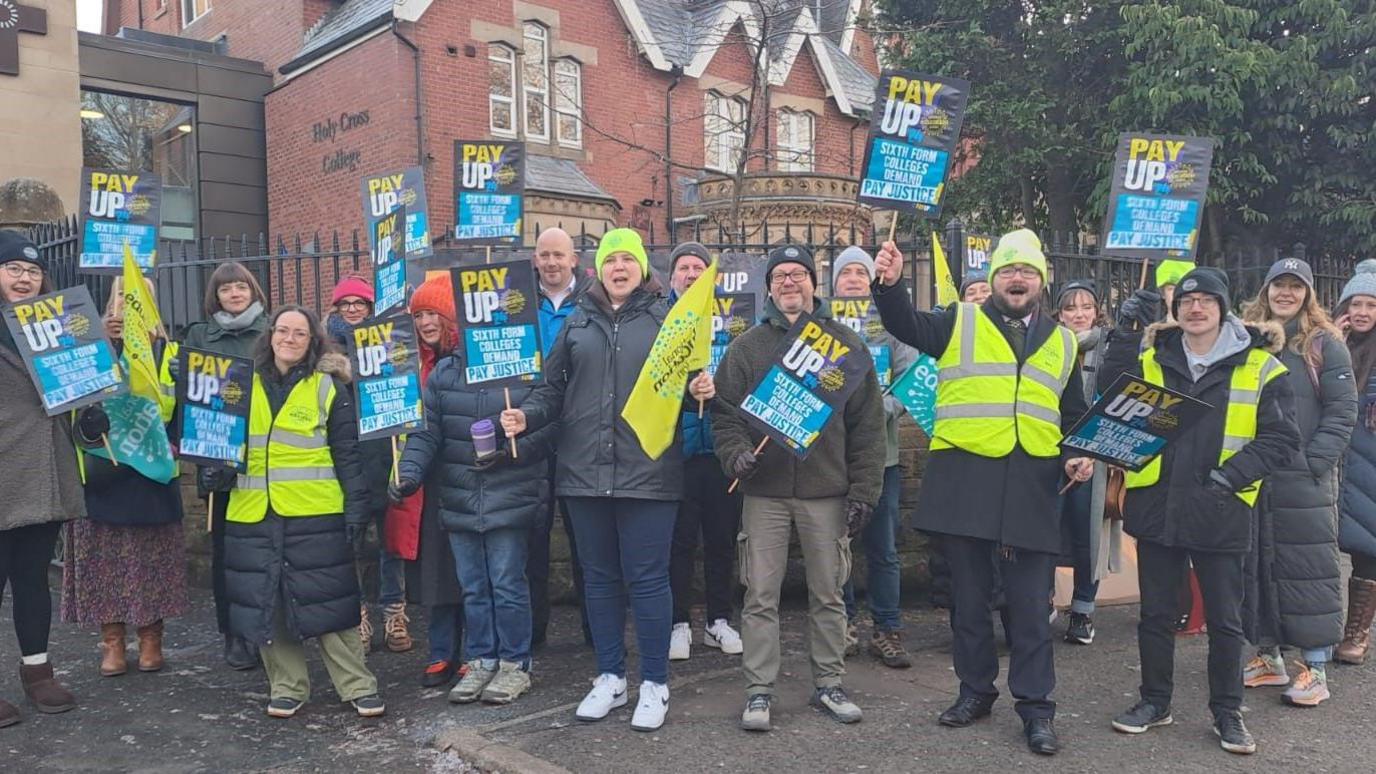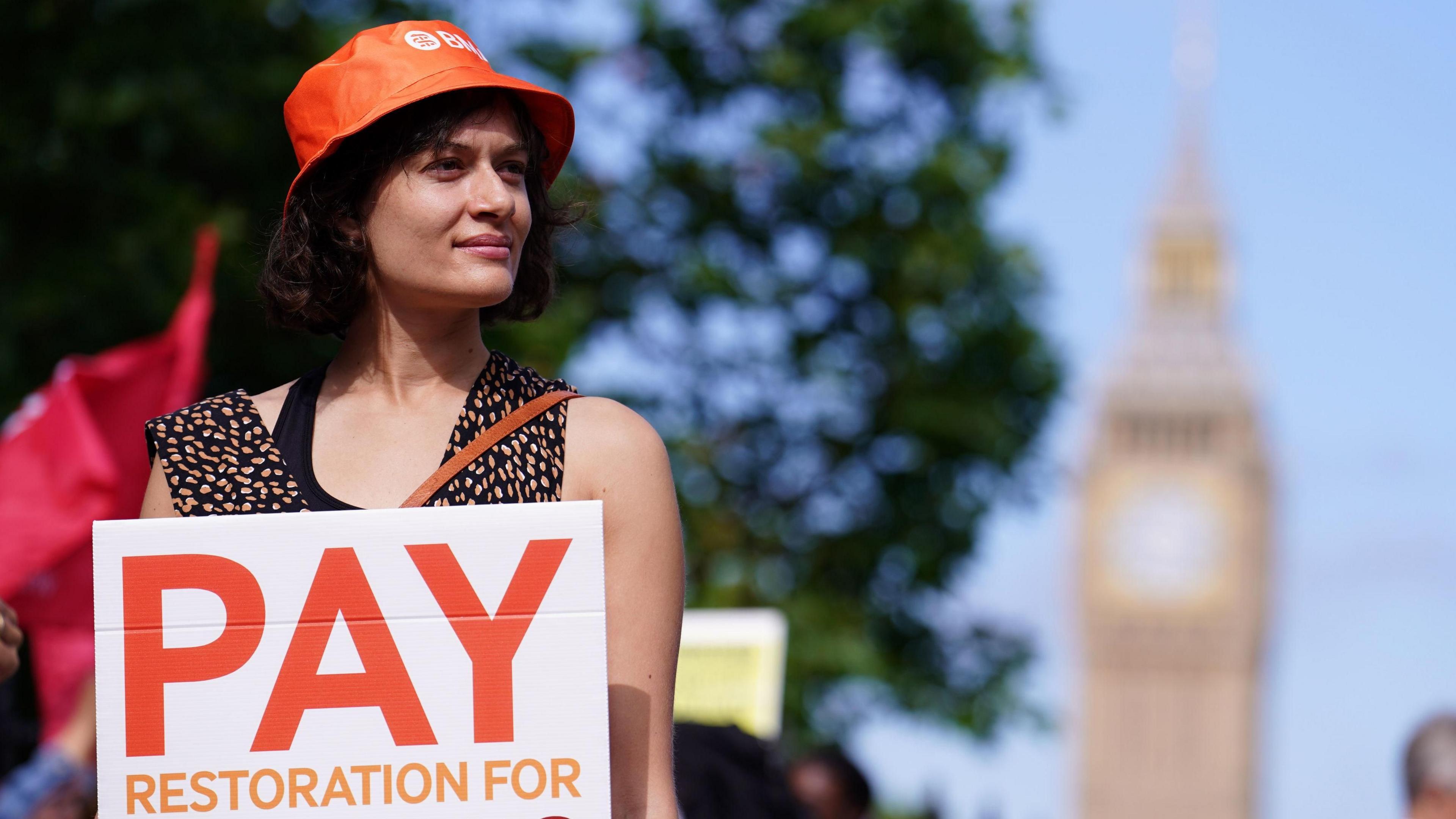Sixth form college teachers strike over pay

National Education Union members held a rally outside the Department for Education, in London
- Published
Tens of thousands of students in sixth form colleges across England are having their studies disrupted by strike action.
The National Education Union (NEU) says around 2,000 members are taking part in a walkout over pay.
In September, most teachers in schools and academies received a 5.5% pay reward, but sixth form colleges were not included in the pay uplift.
The Department for Education says sixth form colleges are responsible for setting their own pay.
Outside Holy Cross College, in Bury, Greater Manchester, around 20 teachers were protesting on Thursday morning.
“It’s very cold, but we are willing to brave it," said Peter Barrow, the NEU reprensative at the college, which has more than 2,000 students.
“The pay disparity between sixth form colleges and schools threatens the sector as a whole,” he said, adding he hopes the dispute will be resolved quickly.
Two more strikes days are planned next week, on 3 and 4 December.
Sixth form colleges are typically larger than sixth forms attached to schools, and can support thousands of 16-19 year old students studying for A-levels, as well as technical and vocational qualifications.
Many students are currently preparing for exams or GCSE resits, but colleges say they are putting measures in place to prevent major disruption.
Education Secretary Bridget Phillipson awarded teachers in primary and secondary schools an above-inflation pay deal in September, as recommended by the pay review body - with an additional £1.2bn given by the government to help fund the increase.
Teachers in sixth forms attached to schools, and those colleges that have converted to academies, have received the pay rise as they are funded directly government.
NEU members at 32 sixth form colleges , externalwhich are not academies, have decided to strike - impacting around 80,000 students.
General Secretary of the National Education Union Daniel Kebede told Radio 4's Today programme, teachers are "going into Christmas not having had any pay award and we are trying to rectify that situation".
He said it would cost "an additional £15m in funding - 'small beer' in funding terms - to rectify".

Teachers at Holy Cross College, in Bury, joined the picket line this morning
Sixth form college pay is not set by the government, but through negotiations with the Sixth Form College Association (SFCA) and the unions.
Separately, the SFCA are seeking a judicial review of the decision not to include sixth form college staff in the September pay review.
“The government could avoid the disruption to young people’s education that will be caused by this strike action by revisiting its decision to fund a pay award for staff in schools but not colleges," it said, in a statement.
"SFCA took the decision in September to seek a Judicial Review of this decision, and we will continue to pursue this legal action vigorously."
While they do not condone the strike action, SFCA chief executive, Bill Watkin, said they are determined to see “college staff and students get a fair deal from the government on this issue”.
NEU members in colleges in Manchester, Hull, London, Leeds, Birmingham and Bristol are all taking part in the industrial action.
A rally also took place outside the Department for Education, in London.
Earlier this month, the skills minister, Baroness Jacqui Smith, said she would like to see sixth form college staff pay matched with that of school teachers.
“Sixth form colleges are responsible for the setting of appropriate pay for their workforce and for managing their own industrial relations,” a Department for Education official said.
“The October Budget provided an additional £300m revenue funding for further education to ensure young people are developing the skills this country needs. The department will set out in due course how this funding will be distributed.”
- Published29 July 2024

- Published20 July 2024
